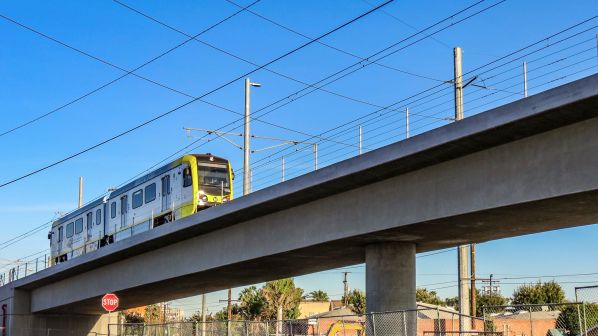Exploring the Economic Impact of Mass Transit in South Florida

Mass transit systems play a vital role in shaping the economic landscape of a region. In the case of South Florida, the introduction and expansion of mass transit systems have had a profound impact on the region’s economy. With a rapidly growing population and increasing traffic congestion, using efficient and convenient transit choices such as carpools, vanpools, and mass transit has become a top priority. In this article, we will explore the economic impact of mass transit in South Florida, highlighting its benefits and potential for future growth.
Job Creation
One of the most significant economic benefits of mass transit systems is job creation. The development, construction, and operation of mass transit infrastructure require a diverse range of skilled labor, providing employment opportunities for local communities. From engineers and construction workers to ticketing staff and maintenance crews, the transit industry offers a wide range of job prospects. Additionally, the growth of mass transit often stimulates the creation of ancillary businesses such as restaurants, shops, and services, further boosting local employment opportunities.
Increased Business Activity
Efficient mass transit systems enhance connectivity and accessibility, facilitating the movement of people within a region. This increased mobility allows individuals to access job opportunities, educational institutions, healthcare facilities, and various recreational activities. As a result, businesses benefit from a larger pool of potential customers, leading to increased sales and revenue. Furthermore, mass transit can attract tourists and visitors who prefer not to rely on private vehicles, contributing to the growth of the tourism and hospitality sectors.
Reduced Congestion and Travel Time
Traffic congestion is a persistent problem in South Florida, particularly in urban areas like Miami and Fort Lauderdale. Mass transit offers a solution by providing an alternative to driving. By encouraging people to choose public transportation over private vehicles, mass transit helps reduce the number of cars on the road, alleviating congestion. This, in turn, leads to shorter travel times, increased productivity, and cost savings for both individuals and businesses. Commuters can use their travel time more efficiently by reading, working, or simply relaxing, resulting in improved overall quality of life.
Environmental Benefits
Mass transit systems contribute to a greener and more sustainable future. Compared to private vehicles, public transportation produces significantly fewer greenhouse gas emissions per passenger mile. By encouraging a shift from cars to trains, buses, and light rail systems, mass transit helps reduce air pollution and carbon emissions, mitigating the impact of climate change. Additionally, transit-oriented development, which involves creating vibrant, mixed-use communities around transit hubs, promotes compact urban growth, reducing the need for long-distance commuting and preserving natural habitats.
Real Estate Value and Investment
Investments in mass transit often lead to increased real estate values in the surrounding areas. Properties located near transit stations or along transit lines become more desirable due to the convenience and accessibility they offer. Developers recognize this value and are more likely to invest in transit-oriented projects, including residential complexes, office spaces, and retail establishments. The resulting increase in property values generates additional tax revenue for local governments, further fueling economic growth and supporting public services.
Looking ahead, the future of mass transit in South Florida appears promising. The region has seen significant investments in recent years, with the expansion of commuter rail lines, the introduction of bus rapid transit, and the ongoing development of high-speed rail projects. These initiatives not only enhance connectivity within South Florida but also strengthen the region’s ties to other major cities, fostering economic integration and trade.
In conclusion, mass transit systems have had a positive economic impact on South Florida. Through job creation, increased business activity, reduced congestion, environmental benefits, and real estate value appreciation, mass transit has become a catalyst for economic growth and sustainability. Continued investment in expanding and improving mass transit infrastructure will undoubtedly yield further benefits, ensuring a prosperous future for South Florida’s economy and its residents.





